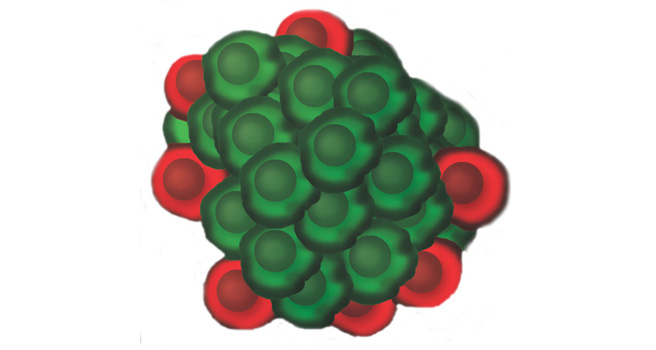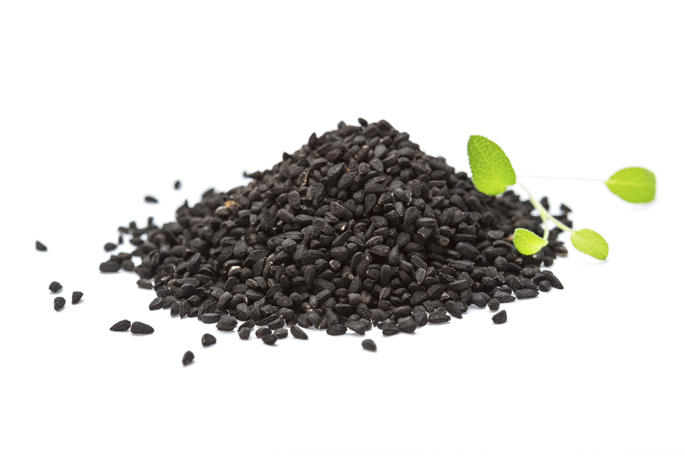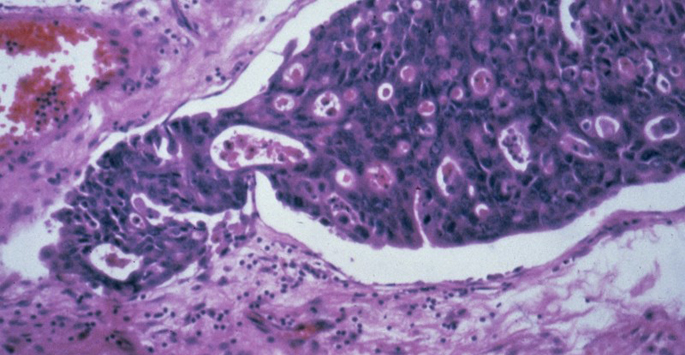Health And Medicine
-

How the cell makes morphine
Vanderbilt investigators have discovered how mammals, including humans, produce the painkiller morphine. Read MoreAug 25, 2015
-

Brain circuitry in psychosis
Functional magnetic resonance imaging has revealed faulty circuits between the thalamus – a central hub of brain activity – and other brain regions. Read MoreAug 21, 2015
-

New type of trial shows promise for several cancers
Anti-cancer drugs are typically tested on one type of cancer at a time. But an international consortium of cancer investigators, including Vanderbilt-Ingram Cancer Center (VICC) researchers, simultaneously tested an existing therapy in patients with several different forms of cancer that all exhibit the same tumor gene mutation. Read MoreAug 20, 2015
-

Grants bolster HIV-focused research capacity
The Vanderbilt Institute for Global Health (VIGH) has received two new grants from the Fogarty International Center of the National Institutes of Health (NIH) to build HIV-focused research capacity with key partners in Zambia, Mozambique and Brazil. Read MoreAug 20, 2015
-

Study seeks to ease ‘chemobrain’ for cancer patients
Many women who receive chemotherapy for breast cancer report problems with their thinking, memory and attention after treatment. Read MoreAug 20, 2015
-

New therapeutic target for diabetes
The factor FoxM1 increases the proliferation and function of insulin-producing beta cells, making it an attractive therapeutic target for diabetes. Read MoreAug 20, 2015
-

Grant bolsters Clinical Data Research Network
The Mid-South Clinical Data Research Network, led by Vanderbilt University’s Russell Rothman, M.D., M.P.P., has been approved for a three-year, $8.5 million funding award from the independent Patient-Centered Outcomes Research Institute (PCORI) to expand its efforts to improve healthcare throughout the Southeast. Read MoreAug 13, 2015
-

Macara lands award to explore cancer cell behavior
Vanderbilt’s Ian Macara, Ph.D., has won an Outstanding Investigator Award from the National Cancer Institute (NCI) — nearly $6.6 million over seven years — to support the “unusual potential” of his research, which seeks to understand and predict cancer cell “behavior.” Read MoreAug 13, 2015
-

Million Veteran Program data spurs research in pharmacogenomics of kidney disease
A team of Vanderbilt and Nashville VA researchers, led by Adriana Hung, M.D., MPH, has been awarded a grant from the U.S. Department of Veterans Affairs to use the Million Veteran Program (MVP) data to conduct diabetes research. Read MoreAug 13, 2015
-

Kennedy Center for Excellence lands five-year renewal grant
The Administration on Intellectual and Developmental Disabilities has awarded a five-year, $2.7 million grant to continue the University Center for Excellence in Developmental Disabilities (UCEDD) at the Vanderbilt Kennedy Center (VKC). Read MoreAug 13, 2015
-

Protein ‘clumping’ linked to severe form of genetic epilepsy
Researchers at Vanderbilt University for the first time have demonstrated in a mouse model that aggregation, the “clumping together” of abnormal proteins, can contribute to a severe form of genetic epilepsy. Read MoreAug 13, 2015
-

VUMC study shifts thinking on how bone fractures heal
New findings show that fibrin, a protein that was thought to play a key role in fracture healing, is not required, shifting understanding of how fractures heal. Read MoreAug 13, 2015
-

Origins of neuroblastoma
Vanderbilt researchers are exploring how neuroblastoma tumors begin and progress, knowledge that could provide new treatments for this pediatric cancer. Read MoreAug 12, 2015
-

Drug combos enhance ovarian cancer cell death
Drugs that target DNA damage improve ovarian cancer cell response to platinum chemotherapies, suggesting new therapeutic opportunities. Read MoreAug 11, 2015
-

Bridging the antibiotic gap
Vanderbilt researchers have discovered how certain molecules with antibiotic properties are synthesized, findings that could lead to new drugs that overcome the increased antibiotic resistance in bacteria. Read MoreAug 7, 2015
-

Stomach cancer cues
Vanderbilt scientists have discovered a new molecular mechanism that promotes stomach cancer development, findings that could provide new opportunities for treatment. Read MoreAug 6, 2015
-

Genotyping project to be an ‘engine of discovery’
Vanderbilt University researchers next month will launch a major initiative to acquire “dense genotypes” from 100,000 individuals whose medical histories are known. Read MoreAug 6, 2015
-

Rothman named to lead population health research efforts
Russell Rothman, M.D., MPP, professor of Medicine, Pediatrics and Health Policy, chief of the Section of Internal Medicine and Pediatrics and director of the Vanderbilt Center for Health Services Research, has been named assistant vice chancellor for Population Health Research. Read MoreAug 6, 2015
-

New targeted therapy shows promise for rare joint tumor
Vanderbilt-Ingram Cancer Center (VICC) investigators and colleagues at several major medical centers have been testing a new targeted therapy that is showing promise for the treatment of a rare tumor that forms in and around joint cavities. Read MoreAug 6, 2015
-

Vanderbilt Clinical Trials Radiology Support Core launched
Vanderbilt’s Department of Radiology and Radiological Sciences has launched the Vanderbilt Clinical Trials Radiology Support Core. Read MoreAug 6, 2015